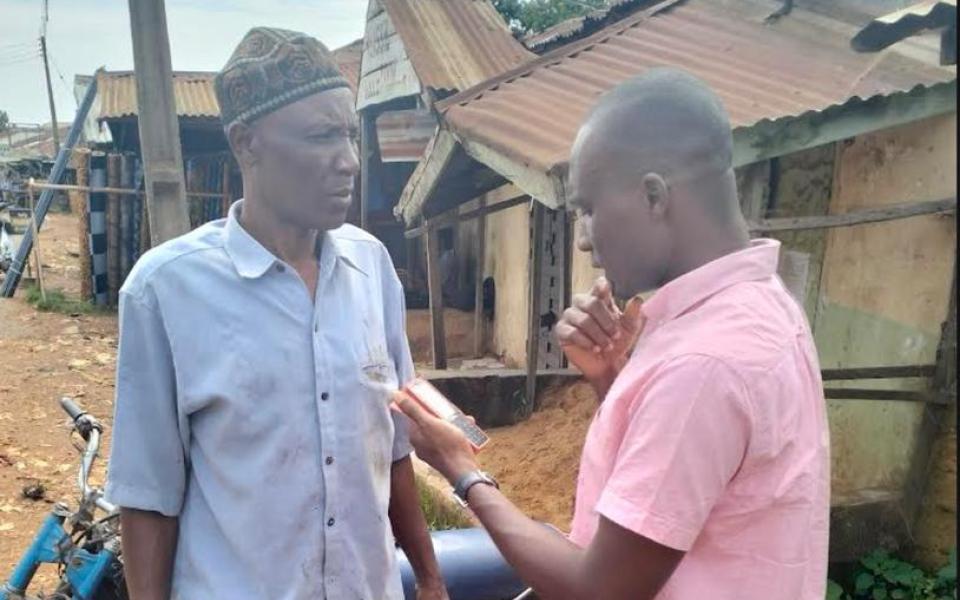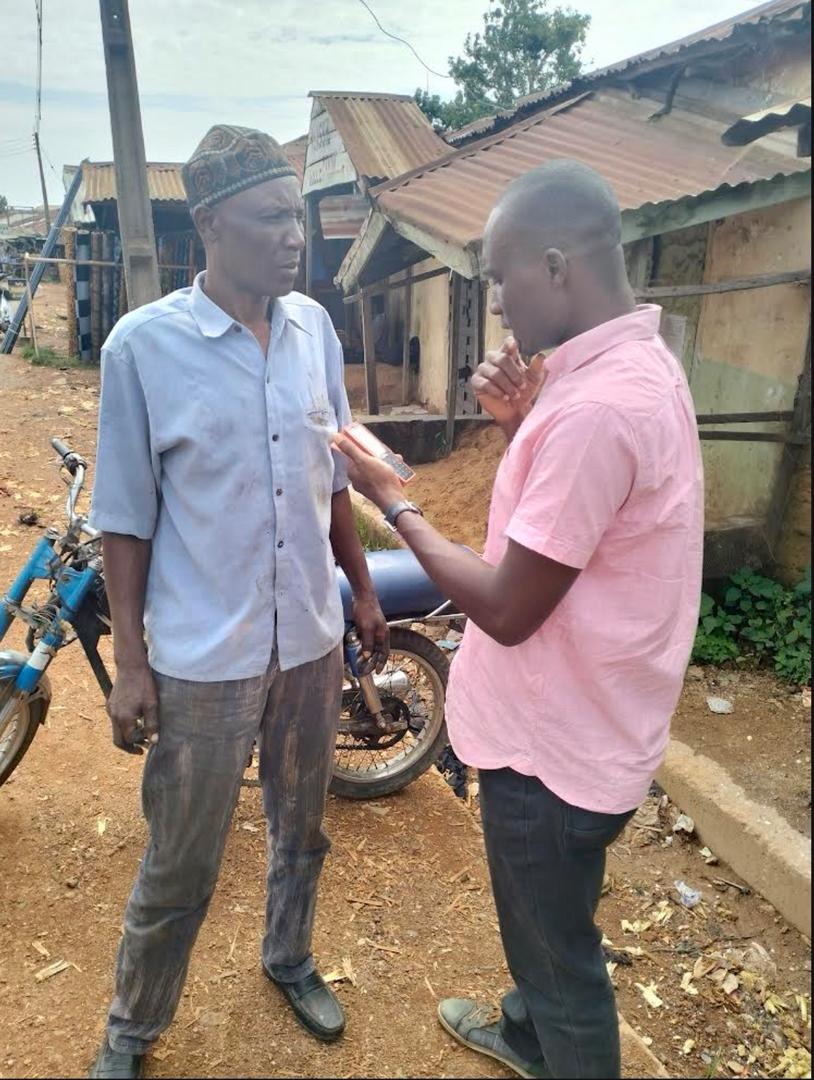As you read this blog post and conversation, we call you to reflect on this question,
What does healing look like in your community?
Here is what Barthomew, Tagwi D, a participant of the URI Youth challenge, shared

The sun stood high over Tundu Wada when I caught up with Elder Teme John Rivi outside his house. He was preparing to leave for a community engagement, standing beside his motorcycle.
Dressed in a black cap, a faded blue shirt, and simple trousers, he looked every bit the respected elder that he is grounded, alert, and always willing to share wisdom.
“Ah, Bartholomew,” he said, squinting against the sun, “make it quick—I’m on my way, but there’s always time for peace.”
So I asked him, simply: “What does healing look like in our community today?”
He paused, placed one hand on the seat of his bike, and looked around at the street—once a zone of fear, now busy with children playing and traders opening shops.
“Healing,” he began, “is when we no longer cross to the other side of the road to avoid our neighbour. When a Christian mother trusts a Muslim boy to walk her child to school, that’s healing.”
Teme spoke from lived experience.
Tundu Wada, once a flashpoint of religious crisis, now carries scars, but also seeds of peace. In the aftermath, it wasn’t government interventions that changed things, but community-led efforts.
Elders like him initiated interfaith dialogue, peace clubs, and youth reconciliation projects like Dandalin Zaman Lafiyasafe spaces for truth-telling and forgiveness.
“We knew,” he said, “if we left the pain alone, it would raise angry children. So we chose to raise peacemakers instead.”
Women began leading healing circles, youths organized clean-up campaigns, and local religious leaders started preaching unity. Slowly, justice was pursued not through revenge, but through restorative actions. Offenders apologized. Victims forgave. Together, they rebuilt what was lost.
“Today,” Teme added with a smile, “you’ll see Christians and Muslims trading, laughing, marrying, even farming side by side. The crisis tried to break us, but we chose to heal.”
As he kicked his bike to life, dust rising around his tires, I watched him ride off, leaving behind more than just words.
He left behind a living testimony: that even in broken places, healing can grow when people choose justice, truth, and peace over silence and fear.

